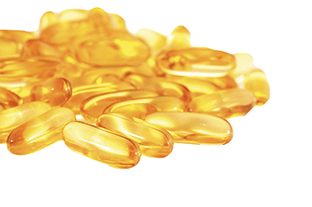Brain boosters

We could all do with a brain boost every now and again. Rude Health takes some advice from health store experts
Word on the street
“Some customers ask about Alzheimer’s, but depression and stress are far more frequent issues,” says Jill Bell of Well and Good in Midleton, Co Cork. “We get a few customers asking about brain health,” says Helena Murphy at Loop de Loop in Castletownbere, Co Cork, “from boosting brain power for exams to helping brain health with age.”
Good advice
“Depending on circumstances, there are a wide range of different products to choose from,” according to Helena Murphy, “but sometimes it can be that the person needs to deal with stress, lack of sleep and exercise or to improve their diet.”
“Lifestyle changes can make a big impact,” says Jill Bell. “Cutting down on caffeine, alcohol and processed foods, grazing carefully to keep blood sugar levels balanced, counselling, and therapies such as yoga, acupuncture and even exercise are all frequent suggestions as well as tips on how to get adequate sleep. Crosswords and Sudoku keep the brain active, but nothing works as well as good friends and social outlets.”
Natural support
“Recent studies indicate a moderate intake of EPA and DHA in omega 3 fish oils is strongly associated with a reduced risk of cognitive decline,” says Dr Geoff Hayhurst of Paradox Omega Oils.
“For minor cases of low mood and on-going stress food supplements can make a significant difference,” says Jill Bell. L-theanine, rhodiola, magnesium and B vitamins work effectively with no side-effects, as well as flower essences. Passiflora is an old favourite for helping you cope with stress and fish oil is essential for brain health.”
“Glutamine can help increase mental function, rhodiola rosea is good for mental performance and omegas are important for our brain,” says Helena Murphy, “so take a good quality oil high in omega 3.”
Other brain supporting supplements include:
- Vitamin B complex – to support the adrenal glands.
- Vitamin formulations that contain magnesium – aid in calming the body.
- Essential fatty acids (EFAs) – cannot be made in the body.
- Omega-3 fatty acids DHA and EPA – found in krill oil.
- Folic acid, vitamins B12 and B6 – great brain simulators.
- A combination of rhodiola, chamomile, vitamins and magnesium combined with a multi B complex – for help if you’re really run down.
- Liquid formulations that contain superfoods such as wheat grass, barley grass and spirulina, B vitamins, minerals and some ginseng for energy.

Brain foods
General food advice for helping to keep your brain sharp includes eating a low sugar fresh and unprocessed diet, and cutting down on tea and coffee, as well as eating plenty of antioxidants in foods such as brightly coloured fruit and vegetables – aim for seven servings per day.
“What happens in the head is often reflected in the digestive tract since the two are linked by the vagus nerve,” says Jill Bell. “Often a customer comes in with digestive problems when the cause of the problem is stress, and treating the head can heal the gut. 60% of our brains comprise omega-3 fatty acids, most readily available in oily fish (even tinned sardines) and foods such as nuts and seeds, avocadoes and eggs are vital, as is an all-round healthy nutritious diet. Conversely, most of our natural serotonin, a neurotransmitter which prescribed antidepressants attempt to stimulate, is found in the gut, so minding gut health is vital for brain health. With dementia of any sort, we suggest trying organic raw coconut oil as there is some clinical evidence and more anecdotal evidence of the benefits of medium chain triglycerides for delaying the progression of Alzheimer-type conditions.”
Choosing the best oil
“Most fish oils you will find are in the ethyl ester form and contain ‘unnatural and synthetic’ omegas,” says Dr Geoff Hayhurst. “It is advisable to choose oils in natural triglyceride form, which means optimal absorption and maximum benefits to health and wellbeing. Vegetable and fish omega oils both contain omega-3, however an omega fish oil has EPA and DHA readily available for the body to use immediately. Look for stabilised omega fish oils because the more stable the omega oil the fresher the oil and therefore more bioavailable.”
More Rude Health articles...
Articles from our latest issue...